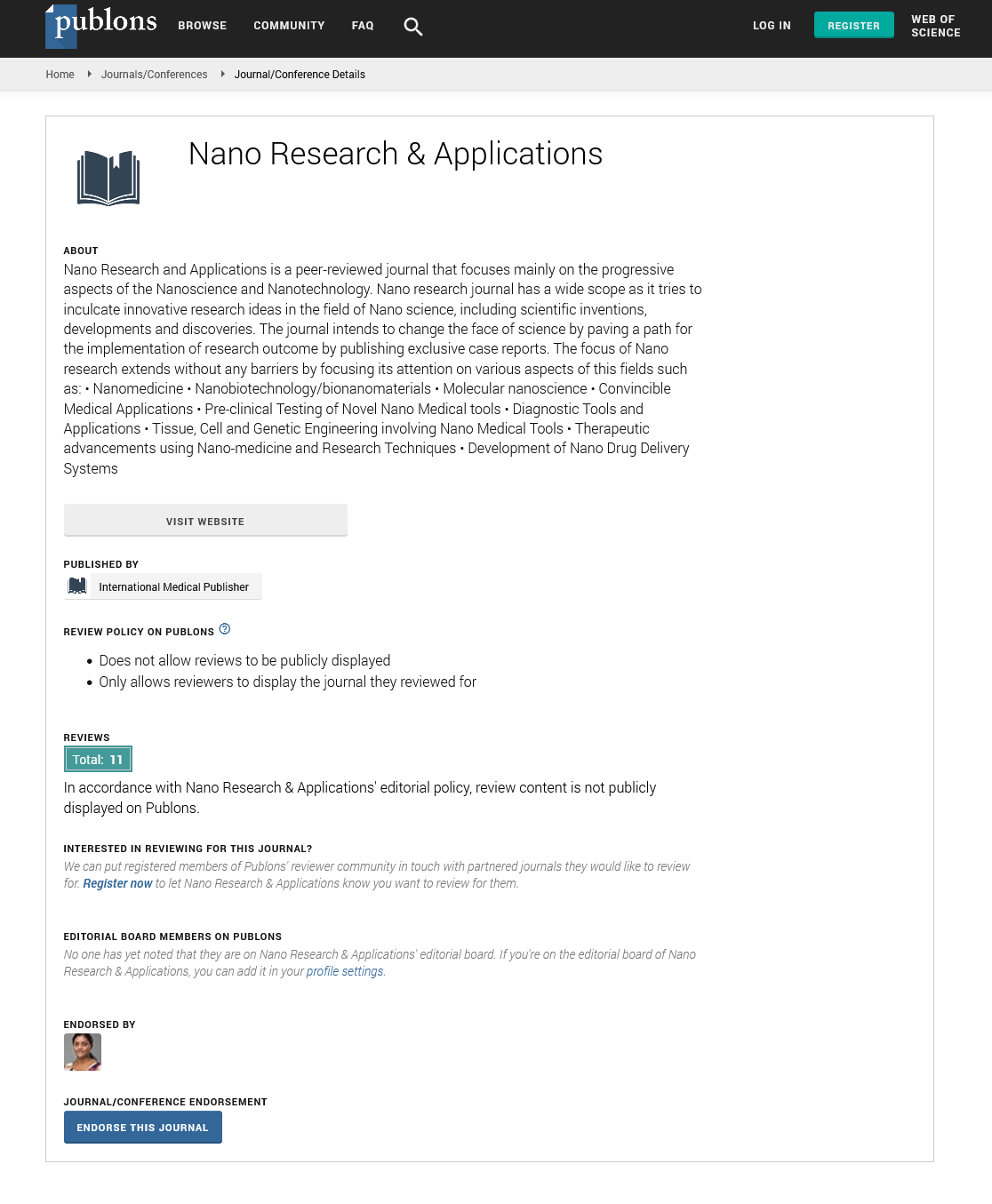ISSN : 2471-9838
Nano Research & Applications
Simultaneous topographical and electrochemical mapping using scanning ion conductance microscopy - scanning electrochemical microscopy (SICM-SECM)
Joint Event on 22nd International Conference on Advanced Materials and Simulation & 22nd Edition of International Conference on Nano Engineering & Technology
December 10-12, 2018 Rome, Italy
Wenqing Shi, Gabriela Mendoza, Byong Kim and Keibock Lee
Park Systems Inc., Santa Clara, USA
Posters & Accepted Abstracts: Nano Res Appl
DOI: 10.21767/2471-9838-C7-028
Abstract
Lately, scanning ion conductance microscopy (SICM) has emerged as a versatile non-contact imaging tool. To obtain spatially-resolved electrochemical information, scanning electrochemical microscopy (SECM), also known as the chemical microscope, has been developed. Hybrid SICM-SECM techniques have been developed, in which the SICM compartment provides the accurate probe-sample distance control, while the SECM compartment measures the faradaic current for electrochemical information collection. In this work, we demonstrate the use of an atomic force microscopy (Park NX10) in combination with an ammeter for concurrent topography imaging and electrochemical mapping. The SICM-SECM probe consisted of an Au crescent electrode (AuE) on the peripheral of a nanopipette. High resolution probe-substrate distance control was obtained by the ion current feedback from SICM, while simultaneous electrochemical signal collection was achieved via the AuE from SECM. As a proof-ofconcept experiment, an Au/Pyrex pattern standard sample was imaged with the SICM-SECM technique. The Au bar and the Pyrex substrate were clearly resolved from the SICM topography image, with the bar height and pitch width closely matching the actual values. In terms of the electrochemical property mapping, higher Faradaic current was seen when the probe was scanned over Au bar as a result of redox cycling, while lower Faradaic current was observed when the probe was over Pyrex substrate due to hindered diffusion. The capability of the SICM-SECM technique described here holds promise of many applications in the field of electrochemistry, material science and nanoengineering.
Biography
E-mail:
wenqing@parksystems.com
Google Scholar citation report
Citations : 387
Nano Research & Applications received 387 citations as per Google Scholar report
Nano Research & Applications peer review process verified at publons
Abstracted/Indexed in
- Google Scholar
- China National Knowledge Infrastructure (CNKI)
- Directory of Research Journal Indexing (DRJI)
- WorldCat
- Publons
- Secret Search Engine Labs
- Euro Pub
Open Access Journals
- Aquaculture & Veterinary Science
- Chemistry & Chemical Sciences
- Clinical Sciences
- Engineering
- General Science
- Genetics & Molecular Biology
- Health Care & Nursing
- Immunology & Microbiology
- Materials Science
- Mathematics & Physics
- Medical Sciences
- Neurology & Psychiatry
- Oncology & Cancer Science
- Pharmaceutical Sciences
